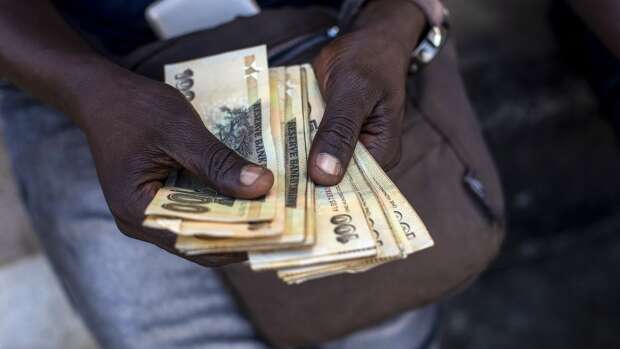Battered Zimbabwe currency falls past 20,000 per dollar in official trade
Having a gold backed currency won’t necessarily stop future devaluations from occurring, Schulman added. “The government can still print money and change its currency ratios.”
- Advertisement -
In less than two months, the Zimbabwean dollar has breached another significant threshold, dropping below 20,000 against the US dollar after its decline past the 10,000 level in late January, according to data compiled by Bloomberg.
On Friday, the currency traded at 20,389 per greenback, reflecting cumulative losses of 70% since the year began, making it one of the world’s worst-performing currencies.
- Advertisement -
The local unit’s slide has not drawn a sharp response from authorities, other than saying they are working on creating a “structured currency.”
- Advertisement -
Such a structure may be backed by gold, Finance Minister Mthuli Ncube has previously said. The central bank has delayed the release of its monetary policy statement while the currency plans are being drafted.
- Advertisement -
The postponement has caused anxiety locally, but most outside investors have already abandoned Zimbabwe’s currency, said Michael Ashley Schulman, chief investment officer and partner at Running Point Capital Advisors.
“The major concern for people in the country is that if Zimbabwe does switch to a gold-backed currency, they will do it at an exchange rate favorable to the new currency and unfavorable to citizens, thus leading to a further last minute devaluation,” Schulman said. “In other words, if you have Zimbabwean dollars, you want to spend them as quickly as possible on something tangible.”
Having a gold backed currency won’t necessarily stop future devaluations from occurring, Schulman added. “The government can still print money and change its currency ratios.”
- Advertisement -


